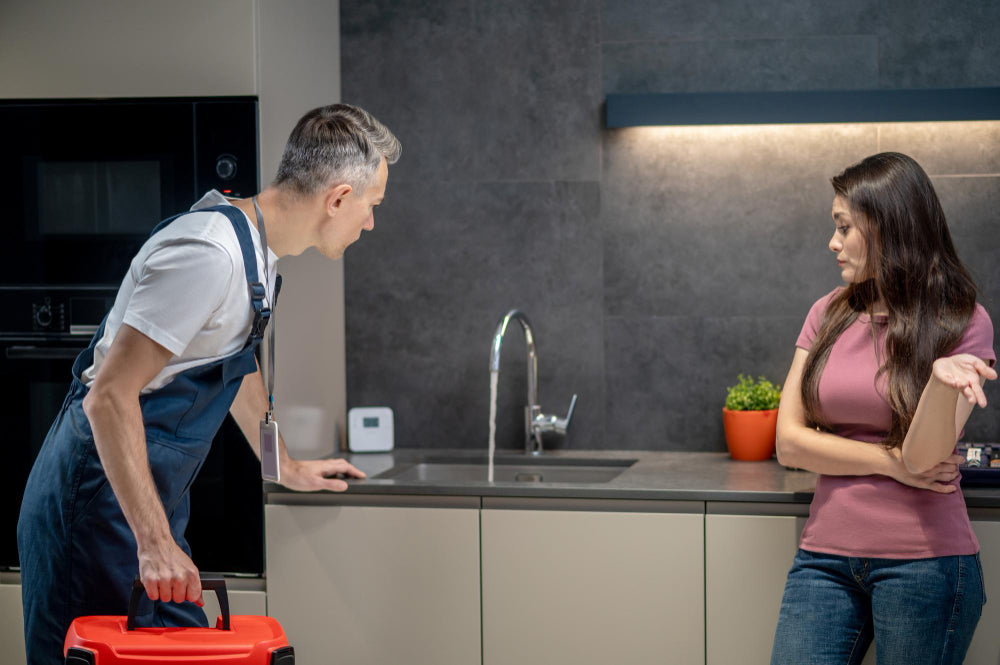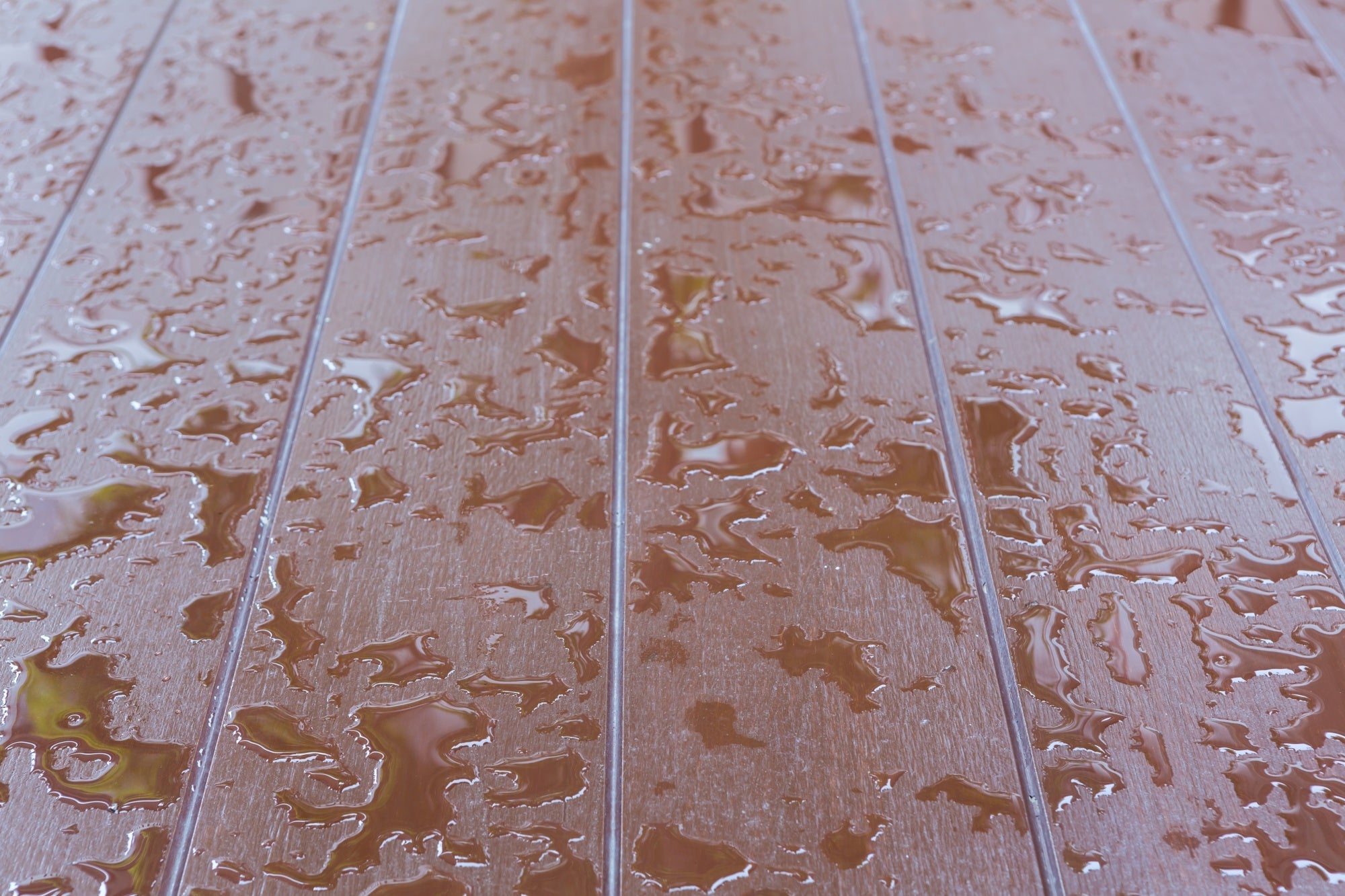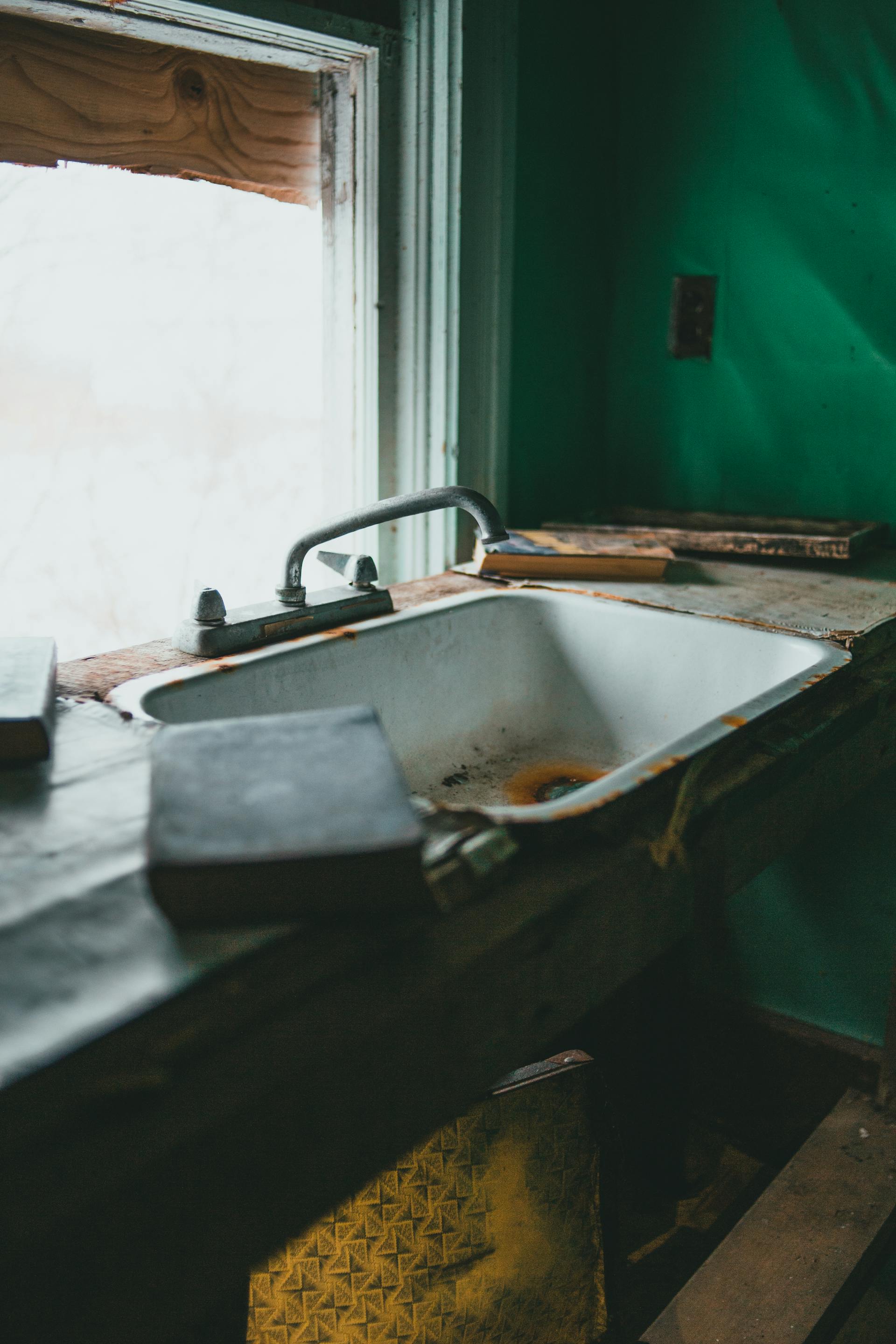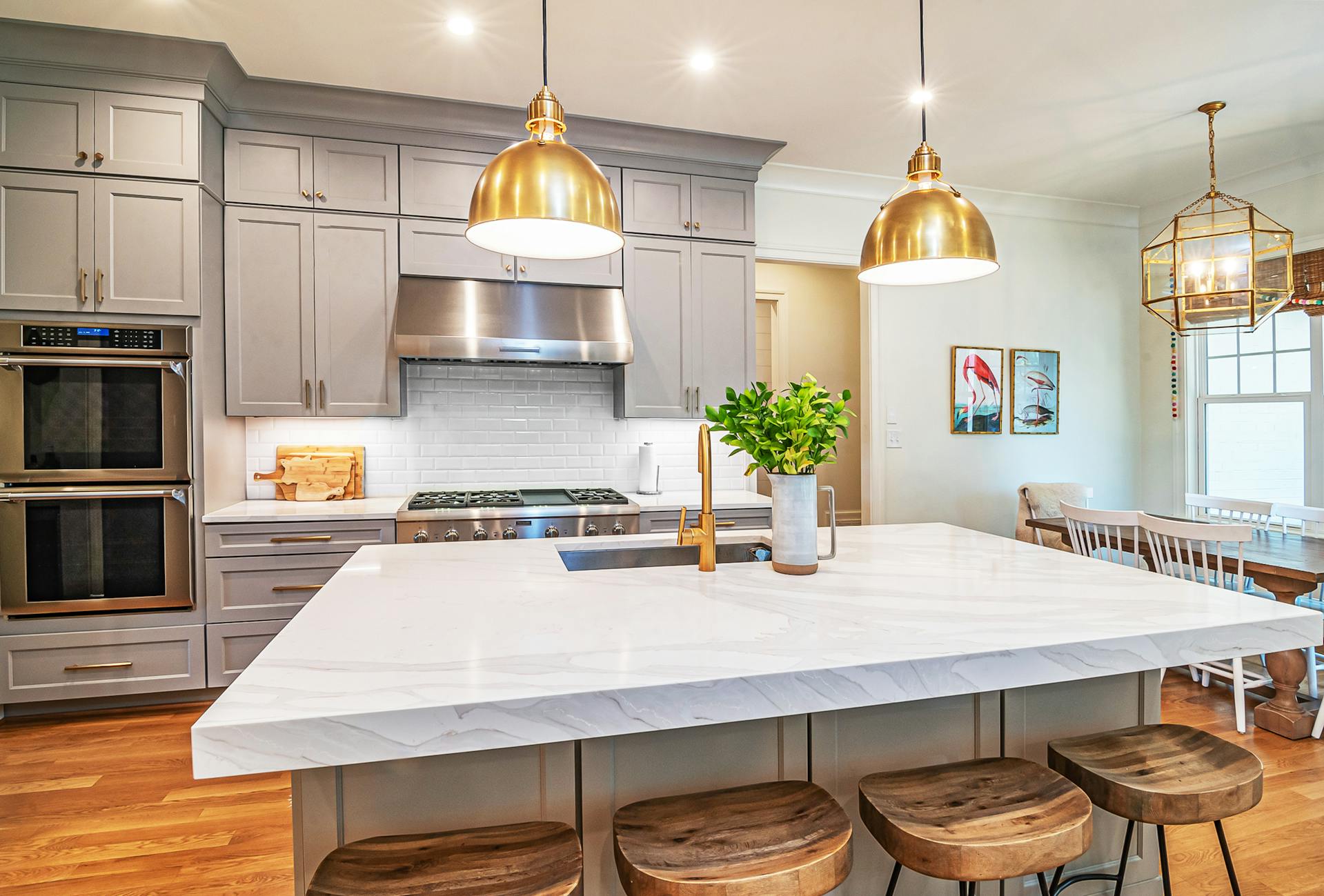G'day mate! You've surely found yourself wondering, 'why is my kitchen sink behaving odd?' You're definitely not alone. We all have scratched our heads over questions like 'why kitchen sink drains slow?', 'why kitchen sink backing up?', 'why kitchen sink leaks?', 'why kitchen sink gurgling?', and my personal favourite, 'why kitchen sink smells like sewer?'. Guessed right, didn't we? Well, buckle up, as we are about to embark on a journey to crack the mystery of the stubborn, uncooperative sinks! Through this guide, we aim to hand you the reins of your kitchen hardware, turning you from a confused user to a confident caretaker of your sinks. Let's dive in, shall we?
No more panicking over a misbehaving sink, it's time to take control and understand the 'whys' of your kitchen sink issues. Hang tight, relief is on the way!
Kitchen Sink Backing Up But No Clog
Remember, taking care of your sink isn't rocket science, all it requires is a bit of knowledge and the right approach. So let’s plunge into our comprehensive guide to tackle everything from slow drains to gurgling sounds. You'll soon realise handling those daily sink battles can be done like a pro, right in your Australian kitchen.
Getting to Know Your Kitchen Sink: Common Problems and Their Causes
So, you've noticed your kitchen sink isn't acting quite right, huh? Maybe your sink water is taking longer to drain away or murmurings and gurgles are coming up when it should be silent. Relax, mate, we've all been there. In the wide brown land of ours, the Aussie kitchen sees a lot of action and sometimes, the kitchen sink takes the brunt.
Here we are going to explore some of the common kitchen sink issues you might face and more importantly, how to take care of 'em.
Why is my Kitchen Sink Draining So Slowly?
One of the main reasons for a slow-draining kitchen sink is the build-up of gunk and muck inside the pipes. It might be small bits of food, grease and oil, or even hair. Over time, these small deposits collect, causing the water to drain much slower than usual. To fix this, you can try using a mixture of boiling water, vinegar, and baking soda to break down the clog.
When your kitchen sink backs up, it's usually due to a clog/blockage further down in the pipes. The obstruction, often composed of hardened grease, food debris, and other waste materials, prevents the water from flowing freely through the pipes. To tackle this issue, you can use a plumber's snake or a drain auger that works its way through the pipe to break up the clog. It's a DIY task, but for serious cases, we recommend consulting with a professional plumber.
It's not uncommon for a kitchen sink to leak. This unpleasant situation can result from worn-out sealants, loose fittings, or a damaged drain pipe. Look out for water pooling underneath your sink as an accurate sign of a leak. Sealing any gaps with a waterproof sealant can temporarily fix minor leaks. However, if hardware replacements are necessary, it's best to hire a professional to ensure the job gets done correctly.
Why is My Kitchen Sink Backing Up?
When you find your kitchen sink backing up, that's often a sign of a larger blockage somewhere in your drainage system. This could be caused by food waste, a foreign object, or buildup of grease or oil. If this is happening to you, it's probably time to call in a professional. An experienced plumber will have the right tools and expertise to diagnose and fix the problem correctly.
Regular maintenance is key to avoid these issues. For instance, be mindful of what goes down your sink. Even seemingly harmless food leftovers can build up over time, leading to a stubborn clog. And remember that not all liquids are equal - oil and grease are notorious for sticking to pipes and causing blockages. Implementing a routine clean - perhaps once a fortnight - can significantly assist in preventing these troublesome backups.
If the problem persists, don't fear. Professional assistance is just a call away. Consider enlisting the expertise of a certified plumber who can conduct an in-depth inspection and resolve the issue efficiently. Remember, it's better to tackle the issue head-on than to let it escalate, potentially damaging your sink and plumbing system in the process.
What Causes a Leaky Kitchen Sink?
Now, why is your kitchen sink leaks? A leaky sink is often the result of a worn-out washer or seal, that needs replacing. Another common cause is the sink fitting becoming lose over time. Checking the tightness of your sink's fittings and replacing any worn out parts can nip this problem in the bud.
Aside from loose fittings and worn-out parts, there might be other potential culprits for a leaking sink. Corroded patches on the piping, for example, could allow water to seep through. This is especially true for older sinks that have been around for a while. If you notice a wet patch beneath your sink accompanied by the tell-tale drip, drip, drip of water, a corroded pipe might just be your issue. In this case, you'll likely need to call in a professional plumber for a closer look and potentially, a pipe replacement.
Another possible reason why your kitchen sink leaks is due to a clog in the P-trap. The P-trap is the curved section of pipe under your sink, designed to trap debris and prevent it from making its way further into your plumbing system. Over time, however, the trapped debris can accumulate and cause water to back up, leading to leaks. Regular maintenance and ensuring you avoid pouring solid waste into your sink can keep your P-trap and your sink clear and leak-free.
Sealant erosion is yet another reason why your kitchen sink leaks. The sealant or caulking around your sink helps keep water from entering the space between the sink and the countertop. However, over time, this sealant can start to erode, causing water to seep through, leading to leaks. Applying a fresh layer of sealant can solve this issue.
Facing a Gurgling Kitchen Sink?
On to the mysterious gurgling noises you may be hearing from your kitchen sink. This is a sign of blocked vent pipes, which help regulate the air pressure in your sink's P-trap. If the vent pipe goes blocked, the flow of water creates a suction causing those strange noises. You may need a plumber to fix this one, as it involves hard-to-reach pipes.
When faced with the gurgling kitchen sink issue, it's always wise to rule out any simple causes first, like a clogged drainpipe or something lodged in your garbage disposal. However, if those areas check out and the gurgling persists, it’s likely you have a blocked vent pipe. This is where we recommend calling a pro.
Professional plumbers have the experience and the right tools to locate and clear blockages, even in those hard-to-reach areas. Also, working with a plumber can ensure that the job is done correctly, which will help prevent more expensive repairs in the future. Don't be shy; if your kitchen is sounding more and more like a low-budget horror film, it's perfectly alright to ask for help!
Is There a Sewer Smell from the Kitchen Sink?
No one likes a kitchen sink that smells like a sewer. Nine times out of ten, this foul odour is caused by rotting food debris caught in your sink drain or garbage disposal. Frequently cleaning your sink and disposal can help, as can running the disposal with a mix of ice and lemon or lime peel to freshen up the smell.
Even though that takes care of everyday smells, the stench of a sewer is a different beast altogether. This issue often ties back to a problem with your home's plumbing system like blocked vents or damaged drain pipes. If, after cleaning, the smell persists, calling a plumber can be your best bet to get to the root of the problem. After all, exposing yourself and your family to sewer gas is not only offensive to the senses but potentially harmful as well.
Staying attentive to your kitchen sink's woes does not only assist in maintaining hygiene, but it also extends the life of your sink. A slow-draining sink could be an indication of a blockage waiting to manifest into something more severe. Implementing regular upkeep can save you a bundle on replacement or major repair work down the line. It’s always good practice to address minor concerns before they escalate. To prevent backing up, remember to never pour fat or grease down the drain. These substances cool down, solidify, and create clogs that can cause major kitchen nightmares.
So, there you go, mate. With a little TLC and some quick-fix DIY, you can keep your kitchen sink in tip-top shape. But remember, when in doubt, don't be afraid to call in the professionals - they're the real sink superheroes!






Share:
The Natural Beauty of Stone Sinks: A Perfect Fit For Your Bathroom
Why A Workstation Kitchen Sink Is A Smart Investment For Your Aussie Home